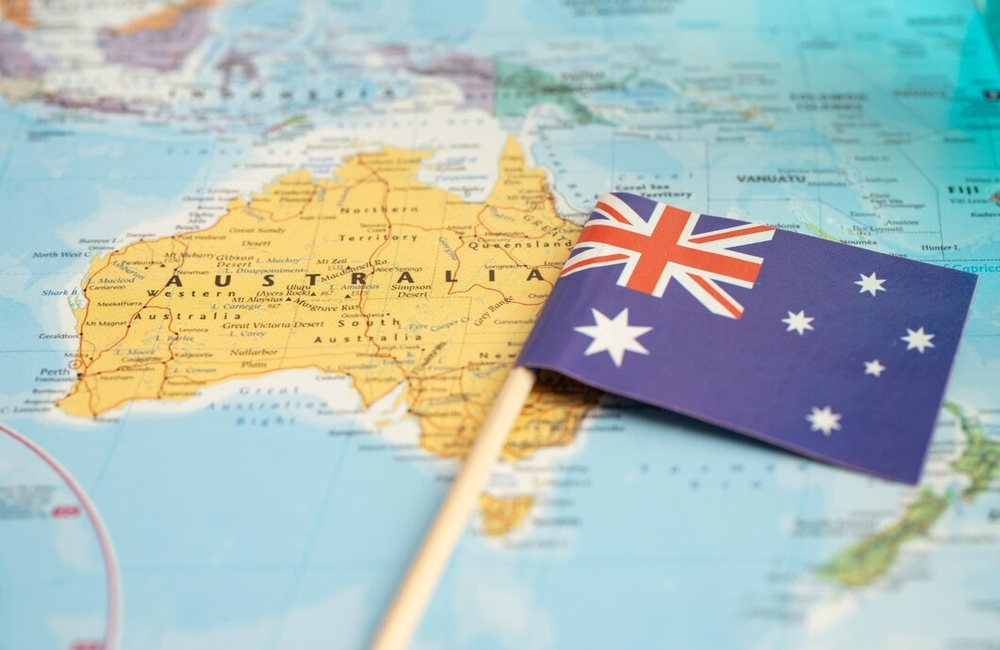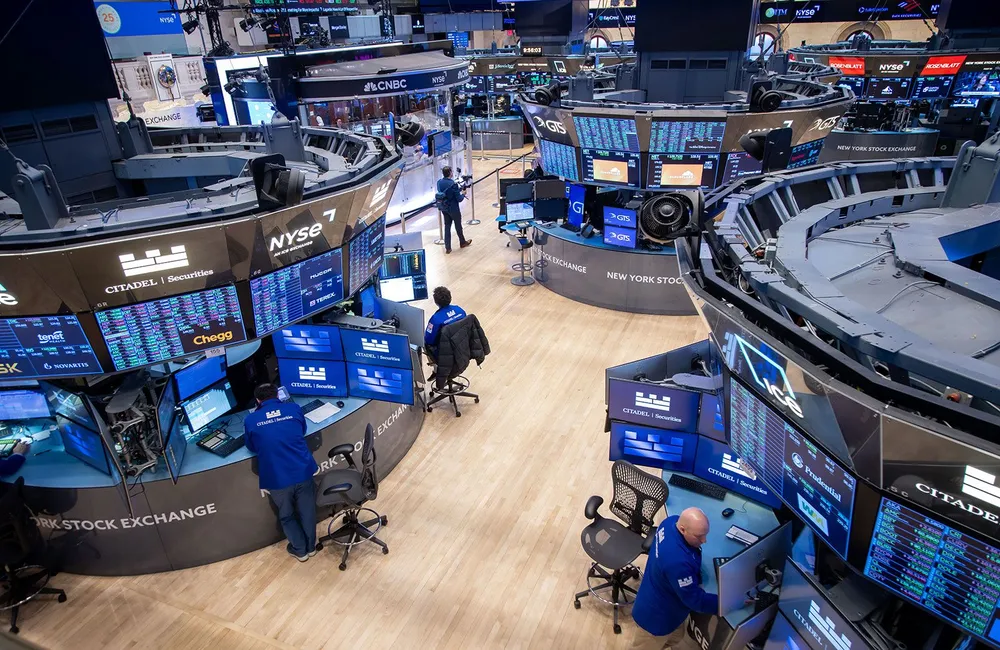Luckily for us, and thanks to great US Hall of Fame baseball catcher Yogi Berra these gems are timeless and very much usable: The future ain't what it used to be; It's tough to make predictions, especially about the future; It ain't over 'til it's over. But we still love to use them because Yogi tried to explain, “On many occasions I have said, ‘I never said most of the things I said‘ and that the quotes were fabricated by ‘newspapermen’ (now we would just blame the ‘media’).
But there is one Yogi-ism with limited applicability to financial markets right now: “It’s like deja vu all over again.” (deja vu translation: “already seen”). A lot we haven’t seen in some time.
Interest rates in Australia are as low as they've ever been, but will begin to go up after the election in May. Worldwide, negative bond rates constituted a shocking 30% of global bond indexes in 2021, but that has shrunk to 5% as the era of falling rates, a trend lasting at least three decades inverted in 15 years. Governments across the globe have never stepped up their purchases of securities quite like this, and now that’s coming to an end too. Prices for commodities like coal are at 20-year highs, for lithium at record levels. The Ukraine War threatens global peace and nuclear attacks above any time since World War 2.
Where we once envisioned a future of smaller governments, now we’re confronted with a more interventionist and larger public sector. The majority of the inhabitants of the planet are now under autocracy, Donald Trump is the bookies’ favourite to regain the Presidency in 2024 and who knows how much further to the right and aggressive the US will become. Putin in one corner, Trump in another … oh, dear!
The threat of a divided world has undone all previous gestures towards closer global links and trade. Increasingly the 'iron curtain' is being rebuilt and Europe is having trouble filling the 40% of its gas needs that are coming from Russia. Domestic cost pressures ostensibly require us to spend billions more on defence than previous budgets allowed, because of a threat of a Chinese military base in the Pacific.
And don’t forget the continued effects of the pandemic. Consider how the shutdown in Shanghai is impacting the movement of goods, as there are usually around 100 boats waiting to be unloaded and now there are more than 300.
Some fund managers are well positioned for these disruptions those who are backing resources and energy, for instance but others have misunderstood the changes. In that particular instance, over the five months between the beginning of November 2021 and the end of March 2022, we saw the ASX200 Total Return index return 4.5% (and the ASX200 Resources Index return 34% offset by the ASX All Technology Index return of -19%). That’s a 53% disparity across two sectors of the ASX Index. Never deja vu before.
Reasons for Hope
There are grounds for hope in Australia, however. Big hope for our economy and Federal Budgets and many companies and fund managers is a continuing resources boom. The global gas crisis is a windfall for domestic producers like Woodside. According to Senior Equity Analyst Mark Taylor:
“We expect Woodside’s near-term profits to be supercharged by the high prices of hydrocarbons but particularly of uncontracted LNG.”
The big upside has already been factored into the Budget deficit upgrade delivered by Josh Frydenberg last week. Exports of resources, including energy, are forecast to hit $425 billion in FY22, or 50 percent higher than forecast, dumping a $100 billion upgrade into the Budget coffers.
The growth of EVs is a boon for Australia, where lithium carbonate prices in China have jumped from US$10,000 a tonne in July 2021 to US$75,000 at present. He points out that the share prices of companies like Pilbara Metals have risen 10 times in just two years. Just as carmakers are scrambling, Australian miners are building new mines and bringing on new capital to rerate their stocks for future growth. In a great example of the trend of the times, GM and Honda have just announced a technology sharing partnership to create millions of EVs for around US$30,000 by 2027.
Robust resources have a boom/bust reputation but these are reasons to believe that, unlike with oil and gas, the success is likely to run on for many years, although see Ashley Owen's article on this. With a 22.5% tax on super profits, if Australia had implemented the Minerals Resource Rent Tax as proposed — imagine the Budget. Back in Norway, it has the world’s largest sovereign wealth fund with US$1.4 trillion in assets based on its 78% tax on income from North Sea oil: Such a tax has already been proposed in the US. The Senate Budget Committee is evaluating proposals to tax the windfall profits of large oil companies by half the difference between their current profits and their average profits between 2015 and 2019. What the major parties have said going into an election in Australia is that there is no resources tax.
On the good news side, this is from the Australian Actuaries Institute:
“In 2021, in the presence of COVID19 public health measures, there were 2 deaths from influenza (compared to 840 expected); deaths from pneumonia were 31% lower than expected, and all respiratory disease deaths were 17% lower than expected.”
Graham Hand
In this week's edition...
How active is your fund manager?
Where do you hope to be with your active fund manager? To beat the index, they have to own stocks outside the index weighting, but there is an asset owner temptation to play it safe and hug index. If you are paying for active management then you want a manager with skill and risk profile to support strong convictions — but how do you know your fund manager is actually having a good go?
China and Taiwan tension
As the war grinds on in Ukraine, many pundits have shifted their focus to China and Taiwan. Jason Hsu’s parents are still in Taiwan and he was born there. Much of the commentary on the parallels, he says, is lazy and shows little understanding of the political reality in China and Taiwan.
Hybrids vs Bonds
Many investors are now souring on bonds and are looking to get their fixed interest exposure through hybrids instead. Matthew Macreadie describes some of the unique risks to hybrids and recommends that investors take a more pragmatic view of the risk-return trade-off.
Commodities Cycles
The history of commodities prices is littered with price spikes followed by surplus supply leading to price collapses once new supply or substitutes catch up with and then exceed demand. Ashley Owen reviews the historical price of commodities and discusses how investors can pick the cycles on pricing of commodities.
Election Watch
When will the election be declared: With the Federal Budget behind us, and the May deadline approaching, we have two on the political aspect. One thing’s certain: Noel Whittaker was no fan of last week’s cash splash in the race to the polls. And with tens of billions spent on the aged care sector alone, and more to come, Louise Biti says the election industry killer issue of consumer contributions has not been addressed by either side. She believes, she said, that individuals must begin the difficult discussion about planning for frailty.
Age Pension Increase
Most recently, Australia’s age pension increased as of March, going up due to inflation and the escalating cost of living pressures. This is the largest rise in the payment in nearly a decade and Rachael Lane talks us through the rules changes.
White Paper: Investor Behaviour
The White Paper summarised this week discusses Vanguard’s clients’ investment behaviours in 2021, distinctions between men and women and generations and has Covid-related investment trends.
Investor Protection Debate
We got a lot of comments on last week’s article on the return of conflicted selling fees, in which we discussed that some financial advisers and brokers are changing their business models to favor “wholesale” clients and disregard investor protections. One of those responses was Judith Fox of the Stockbrokers and Investment Advisers Association (SIAA) who had a link to their recently published white paper, ‘Does the wholesale investor test need to change?’ It appears in the comments on the article.





















